Tackling issues in women's health: International Women's Day 2020
8 March 2020
March 8 marks International Women's Day. Seven women from the Faculty of Medical and Health Sciences talk about the biggest medical and health issues facing women today, both as recipients and providers of medical and healthcare services.
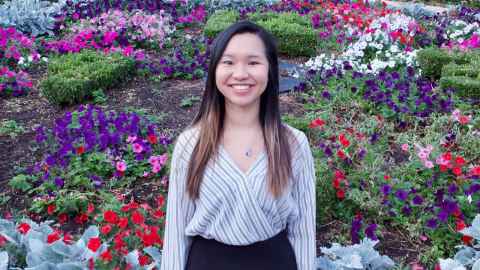
Natalee Zhu
Director, Women in Health Network
Pay gaps, uneven opportunities for advancements, unbalanced representation in decision-making bodies—these are some of the issues that women in healthcare professions are likely to encounter. Knowing how to handle these situations and bring about meaningful change requires the right tools, which is what the Women in Health Network (WiHN) aims to provide.
Part IV pharmacy student Natalee Zhu is this year’s director of WiHN, and sees the network as a valuable opportunity to “create an environment and community where people can have a better understanding of their specialties, grow a young woman's potential in their careers and facilitate multi-disciplinary support in the healthcare sector.” She explains how WiHN facilitates mentorship relationships and healthcare-related events build meaningful networks between students and professionals. “Rather than dwelling about the problems, we want to create a supportive environment that builds towards a future that we are proud of.”
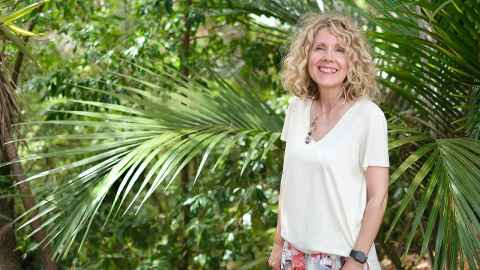
Dr Annette Lasham
Senior Research Fellow, Department of Molecular Medicine and Pathology
Breast cancer is the most common cancer in Kiwi women, yet our outcomes have been reported as less favourable compared to other western countries. This is why Annette is taking a multi-faceted approach to breast cancer research, including developing new biomarkers, generating new drugs and furthering her understanding of the disease and its treatment. “Working towards the development of something that may improve outcomes for New Zealand breast cancer patients keeps me tenacious and driven.”
Despite her passion for the work she does, there are still challenges that Annette faces in her research endeavours. One of these challenges is funding. The cost of genomics research can make projects expensive to run, plus the cost of the researchers’ salaries makes the grant-application process tricky.
Annette’s greatest challenge is balancing her work life with motherhood. “The University recognises the juggle that parents face and is increasingly making moves towards supporting working parents.” While striking the right balance can be tricky, Annette has no regrets—"Being a mother in science has proven to be the greatest career choice for me.”
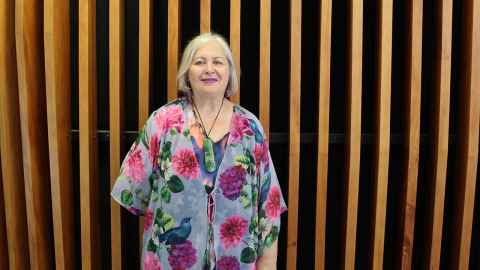
Dr Tess Moeke-Maxwell
Research Fellow, School of Nursing
As a qualitative researcher in end-of-life care, Tess notices the specific challenges that wāhine Māori are facing in these circumstances. Some of these challenges are rooted in the relationship obligations women have towards their whānau. “Whānau mean everything to Māori women and they will do anything to make sure their whānau are safe, well and happy. It’s not always easy putting themselves first.” Both wāhine receiving and providing end of life care can struggle as they try to take care of themselves and their family.
Yet other challenges are systemic, rooted in colonialism. Tess explains how “inequities make the job of caring for someone until they cross the ārai (veil) even more challenging. If whānau have lost their traditional care knowledge… and they do not have a strong collective system of care to lean upon, women often shoulder the full responsibility of providing end of life care.” However, there are primary caregiving relationships informed by the degree of emotional connection the dying person has towards their carer; this person may be a male, a favourite grandson for example.
Through an HRC funded-study, Tess and her Pae Herenga study team are hoping to help revive some of this traditional knowledge through the collection and sharing of stories. Whānau, rongoa rakau (plant medicine) healers, tohunga (spiritual practitioners) and Māori health professionals have all been interviewed, and their stories support whānau who need them.
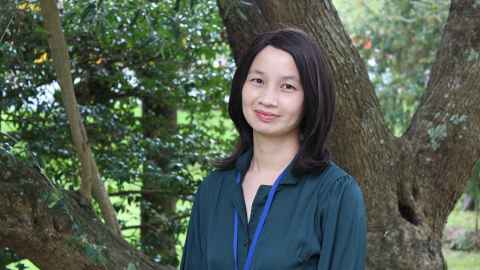
Dr Joanna Chu
Research Fellow, National Institute for Health Innovation
As the old saying goes, ‘It takes a village to raise a child’. Yet when it comes to support for parents, Joanna noticed a lack of resource for parents of adolescents. “A lot of parents are not aware of where to seek support, or there are barriers, such as stigma, cost, time that makes it challenging for parents to get support.” Joanna’s been trialling a text message programme called MyTeen, which sends practical parenting advice to parents of teenagers. “It’s about normalising help-seeking, and recognising the strengths of parents in seeking support as a commitment to the well-being of their child and family.”
Joanna found that mothers were overrepresented in the parenting study, and many of them wanted the extra support to help them take care of both themselves and their children. “Something that came through from the qualitative comments from mothers was [the value of] being reminded about the importance of taking care of yourself as a parent.” She encourages mothers to normalise help-seeking and see it as part a wider commitment to family wellbeing, rather than a burden or sign of weakness. Joanna reminds parents that “parenting is rewarding but demanding and stressful at times, and we are not expected to do miracles or do everything alone”—so if you need some support, make the most of the opportunities available.
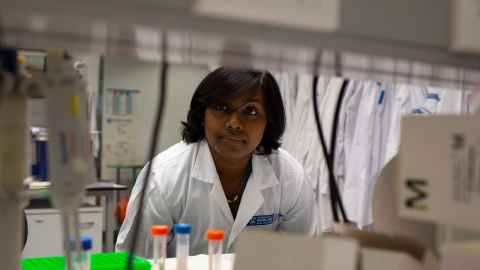
Dr Anna Ponnampalam
Senior Research Fellow, Department of Physiology; Lecturer, Department of Obstetrics and Gynaecology
Having a uterus can be a real pain—sometimes quite literally—yet period complications and conditions like endometriosis remain some of the most underfunded areas of research. Anna’s research focuses on trying to understand the pathophysiology and identifying more effective treatment options for pregnancy complications. Beyond biology, she also tries to shed light on cultural myths around period pain that are treated as fact by both the public and the medical community. “Women are generally told or conditioned to believe that pain is a normal part of being a woman… Regularly they are told that they are overreacting or even hysterical!” Not only does this lead to longer wait times for treatment, it is also used to justify harmful stereotypes about women.
These struggles are amplified for Indigenous women and women of colour, whose pain is often taken less seriously and often lack access to adequate reproductive healthcare.
While institutional and government programmes exist to address some of these inequities, Anna knows we need a greater cultural shift. “[We need] systemic and institutionalised change to make equality at all fronts a priority. People from all walks of life should be made aware that various forms of discrimination function together and that means to fully achieve gender equality in society, we cannot ignore other inequalities such as race, class, sexual orientation and/or identity… That is what it would take to make the world a better place for everyone.”
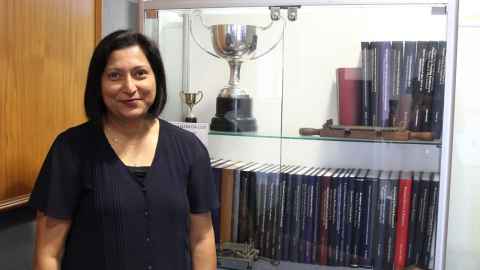
Sanya Ram
Senior Tutor of Pharmacy Law and Ethics, School of Pharmacy
“Educating the mind without educating the heart is no education at all.” The message of this quote by Aristotle is at the forefront of Sanya’s teaching philosophy, especially when it comes to addressing inequalities faced in healthcare. There are a variety of inequities that can limit peoples’ access to medicines and healthcare, which is why Sanya teaches pharmacy students to think critically, using a human rights approach to attain improved standards of care and guidance on critical legal and ethical obligations.
Central to this process is for students to realise the impact they will have on the patients they work with in their careers. “Even subtle gender bias and prejudices may have a lasting and significant impact on health outcomes,” Sanya explains. “Each individual, therefore, carries the responsibility of ensuring that any injustices are consciously addressed and actively mitigated.” The best way to do this is for healthcare providers is to found their practice on human rights, helping to bridge the gaps that currently exist.
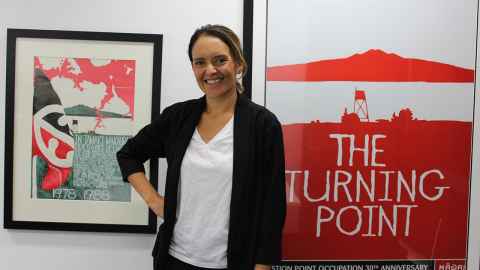
Dr Sarah-Jane Paine
Senior Lecturer, Te Kupenga Hauora Māori (TKHM)
While we may feel as though we live in a time of progress, some health issues are worsening for Māori women. As a researcher taking a Kaupapa Māori approach to epidemiology, Sarah-Jane knows this all too well, and is particularly interested in understanding how inequities in health and the determinants of health for wāhine Māori impact their children. Thinking about this relationship from an Indigenous perspective and centering the expertise of wāhine Māori, Sarah-Jane believes, is critical for achieving health equity for Māori in Aotearoa.
Changing health outcomes for Māori women and children also means getting out of our disciplinary silos and acknowledging the ways that racism and colonialism are driving health inequities for Indigenous people. “We need research that considers the intersections of discrimination that exist for Māori women. The recent Marmot review shows that inequities in life expectancy for women in the UK are worsening, with women living in deprivation and poverty particularly affected. We should all be shocked by this data and the potential implications for the health and wellbeing of Māori women and whanau here in Aotearoa”.